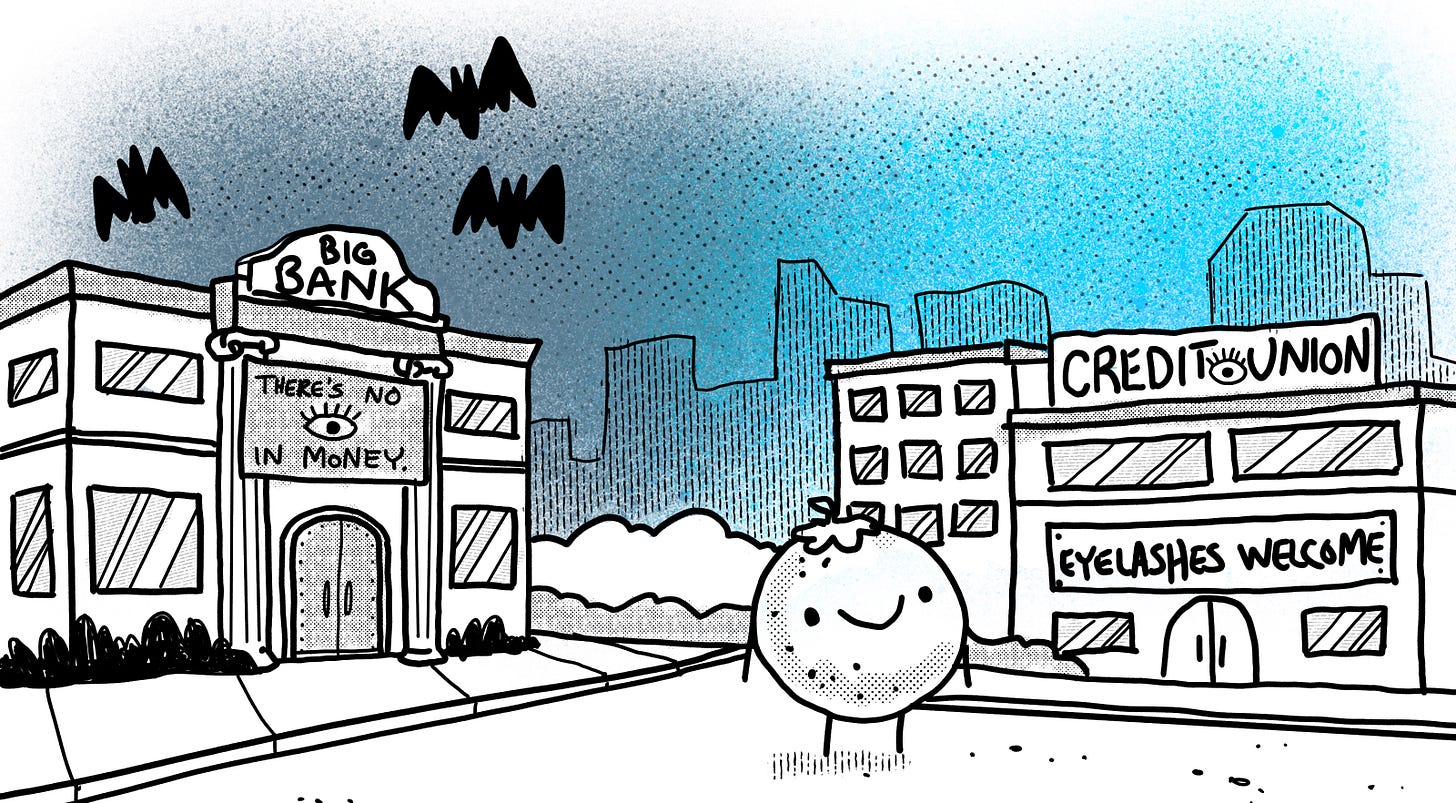NOTE: if you’re new to Ground-Up Governance, or are finding anything a bit strange or confusing, you might want to START HERE.
There’s a type of not-for-profit corporation where the members are ALMOST identical to shareholders. When members actually OWN a piece of the corporation – in addition to getting authority through voting rights, etc. – it’s called a “co-operative,” which for the purposes of Ground-Up Governance is yet another sector.
Some early co-operatives started because big companies realized they could save money by treating their employees really badly. In some cases, those employees got fed up, took matters into their own hands, and got together to start their own co-operative corporation where they could work instead, and where each of them was a member. Not only did they get better treatment, but they had voting authority and got to participate in the governance of their corporation.
In other cases, co-operatives start because people in certain groups have a hard time accessing important goods or services. For example, some banks may not be willing to lend money to Eyelashes – it’s just too risky! But Eyelashes need mortgages and car loans as much as anyone, right? So, Eyelashes might pool their money together and start a co-operative bank called a credit union, where any Eyelash with an account or loan is a member, and gets to participate in the governance of the credit union.
If you’re ever talking to a co-operative, be SUPER careful not to call them a “corporation.” It really bothers them for some reason. Maybe it’s the fact that, compared to other not-for-profit sectors, they’re the ones that most resemble for-profit corporations? Maybe that similarity makes them feel like they need to be extra defensive about being different? On the plus side, co-operatives basically have a superpower, which is they tend to be commercial enterprises (i.e. they buy and sell stuff for money) but making profit doesn’t have to be their highest priority. For example, an Eyelash co-operative might have the lowest prices anywhere on Reallie Steilish hats because they don’t need to make a big profit, and if there’s one thing Eyelashes like, it’s a great deal!






Thanks, Matt. Co-operatives are often missed in governance conversations. There are actually not-for-profit and for-profit co-operatives under Provincial and Federal legislation.